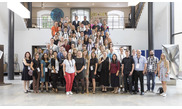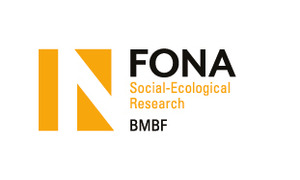Which opportunities do cooperative models and blockchain technology offer to the platform economy? What are other potential pathways toward a more sustainable platform economy?
Today, new digital platforms for sharing, swapping and other ways of collaborative consumption are widely associated with positive economic, ecological and social effects. At the same time, existing platforms like Airbnb and Uber are increasingly criticized in public debate for having negative effects on people, local economies and our planet. As a counter model, new decentral models combining alternative organizational forms (such as platform cooperatives) and new technologies (such as Blockchain technology) are discussed and tested. These and other alternative models promise to better reach social-ecological goals and offer potential to transform the sharing and platform economy.
News
|
Researchers of platform2share present their research projects at the 5th International Workshop on the Sharing Economy | ||
|
Sharing Economy – Opportunities and Challenges for Sustainability
Submission deadline: 15 June 2018 | ||
Organizational Forms and the field of the Platform Economy, Social & Economic ImpactHow to WEconomize local infrastructures? Invitation to talk and discussionplatforms2share & Platform Coops Berlin invite to a joint workshop. Zafrir Bloch-Davin and Yair Friedman from WEconomize in Tel Aviv, Israel, will present and discuss two current projects on local ecosystems and platforms. | ||
|
platforms2share invited partners from the field to jointly exploring the needs and interests and to co-design research questions. We want to than all participants for an insightful day full of intersting discussions and ideas! | ||
Contact platforms2share
 | Prof. Dr. Dominika Wruk Institute for SME Research and Entrepreneurship (ifm)
| ||||||
|
| |||||||







